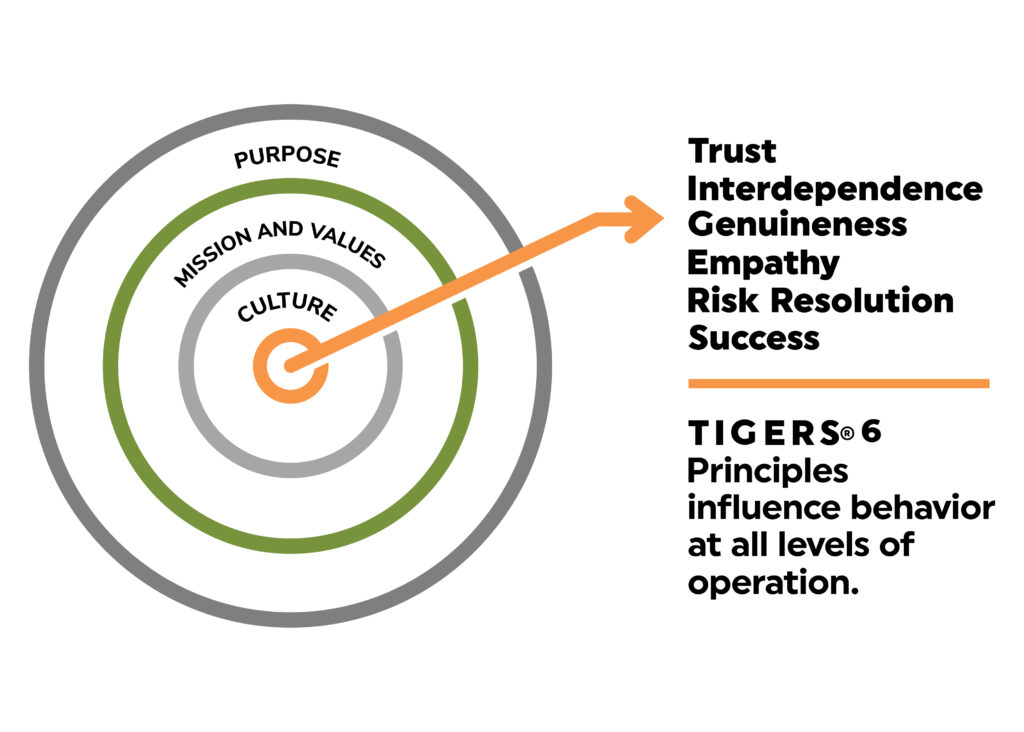 In a world full of “talking points” and performance reviews, what people want most from their leaders is simple—genuineness. They want to know their manager isn’t hiding behind a script. That what’s said in meetings matches what’s felt behind the scenes. That the people in charge are telling the truth—even when it’s hard.
In a world full of “talking points” and performance reviews, what people want most from their leaders is simple—genuineness. They want to know their manager isn’t hiding behind a script. That what’s said in meetings matches what’s felt behind the scenes. That the people in charge are telling the truth—even when it’s hard.
Genuineness is more than honesty. It’s alignment. It’s the consistency between your values, your words, and your actions. And it’s one of the most underrated culture-building tools in leadership today.
When employees experience genuineness, they relax. They engage. They lean in. But when they don’t feel it? They withdraw, perform to protect themselves, and start emotionally checking out—even if they never say it out loud.
Let’s explore why genuineness matters so deeply in your team’s psychology, and how to practice it without losing authority, professionalism, or clarity.
The Price of Pretending
We’ve all worked in organizations where people say what they think others want to hear. Where leaders manage their image more than their impact. Where it’s safer to be polite than real.
But here’s what that costs your culture:
- People waste energy reading between the lines
- Feedback becomes filtered or distorted
- Risk-taking drops because people fear being “wrong”
- Emotional burnout rises—because pretending is exhausting
The truth is, when people sense their leaders aren’t being real, they stop bringing their real selves to work. And that’s the fastest way to lose creativity, resilience, and retention.
Why Genuineness Builds Psychological Safety
Psychological safety—the shared belief that it’s safe to take risks or speak up—isn’t just built on trust. It’s reinforced by genuineness.
When your team hears you speak candidly, own your uncertainty, or acknowledge a mistake, they don’t lose respect for you. They gain trust in you. Why? Because they believe what they see is what they get.
That sense of emotional consistency lowers anxiety, increases loyalty, and improves the quality of feedback, collaboration, and team learning. Want a team that tells you the truth? Show them that it’s safe to be truthful. Start with yourself.
Genuineness Without Oversharing—A Leader’s Guide
Many leaders hesitate to be genuine because they fear “getting too personal” or “losing authority.” That fear is understandable—especially in environments where vulnerability has been punished.
But genuineness doesn’t mean dumping your emotions. It means aligning your inner truth with your outer communication.
You can say:
“This is a challenge I didn’t expect. I’m navigating it alongside you.”
“I want to acknowledge how hard this has been—and how proud I am of how we’re handling it.”
“Here’s what I know, here’s what I don’t, and here’s what I’m committed to figuring out.”
That’s not weakness. That’s strength wrapped in honesty.
Why Genuineness Is Magnetic to Millennials and Gen Z
Younger generations in the workforce don’t want perfection. They want authenticity. They want to know their leaders are people—not just titles.
They’ll leave a job that pays well if they feel emotionally disconnected. But they’ll stay in a role that challenges them if they feel seen, respected, and engaged by someone they trust.
Genuineness is what creates that trust. It’s what makes feedback feel empowering instead of threatening. It’s what makes growth feel exciting instead of overwhelming. It’s what makes teams feel like communities—not just task forces.
The Link Between Genuineness and Emotional Intelligence
Genuineness is also the daily expression of emotional intelligence in action.
It’s how you say:
- “I don’t have it all figured out, but I care enough to stay in it.”
- “This isn’t easy for any of us, but I won’t sugarcoat it.”
- “I’m human—and I’m still leading and still learning.”
And emotional intelligence is what helps you do that with grace instead of chaos. With empathy instead of ego. With accountability instead of avoidance.
If You’ve Been Pretending to Hold It Together—You’re Not Alone
Leadership often feels like performance under pressure. You’ve been taught to be composed, decisive, and unshakable. But that expectation is exhausting—and unsustainable.
If you’ve been “holding it together” while quietly wondering how much longer you can keep pretending, this is your permission to try something different.
Start small. Start genuine. Start now. Say what’s real. Show what you value. Acknowledge what you’re learning. Your team won’t reject your honesty—they’ll respect it.
Final Thought— Real Is Rare. That’s Why It Works.
When you speak with genuineness, your words carry weight.
When you act with genuineness, your culture holds trust.
When you lead with genuineness, your people feel safe to lead, too.
You don’t need to be perfect. You need to be real.
And that begins with a choice to lead from truth—not just technique.
Looking to Build a Culture Where Genuineness Is Normal?
Explore our Leadership Toolkit or Power of Transformational Feedback course.
We help leaders:
- Practice emotionally intelligent communication
- Align team values with daily behaviors
- Create feedback loops that honor people while driving results
- Build trust through consistency, not just charisma
👉 Discover the tools here [insert link]
Because when your team sees the real you, they show you their best.
Copyright TIGERS Success Series, Inc. by Dianne Crampton


The TIGERS 6 Principles empower Executives and Consultants with a comprehensive collaborative work culture and leadership platform to resolve avoidable talent, engagement and work community problems that stunt growth.
A researched and validated collaborative work culture and facilitative leadership model, licensing is available for HR Executives, Operations and Project Managers, Consultants and Coaches to improve their operations and client success.
Schedule a call to secure a tour of the comprehensive TIGERS 6 Principles system.